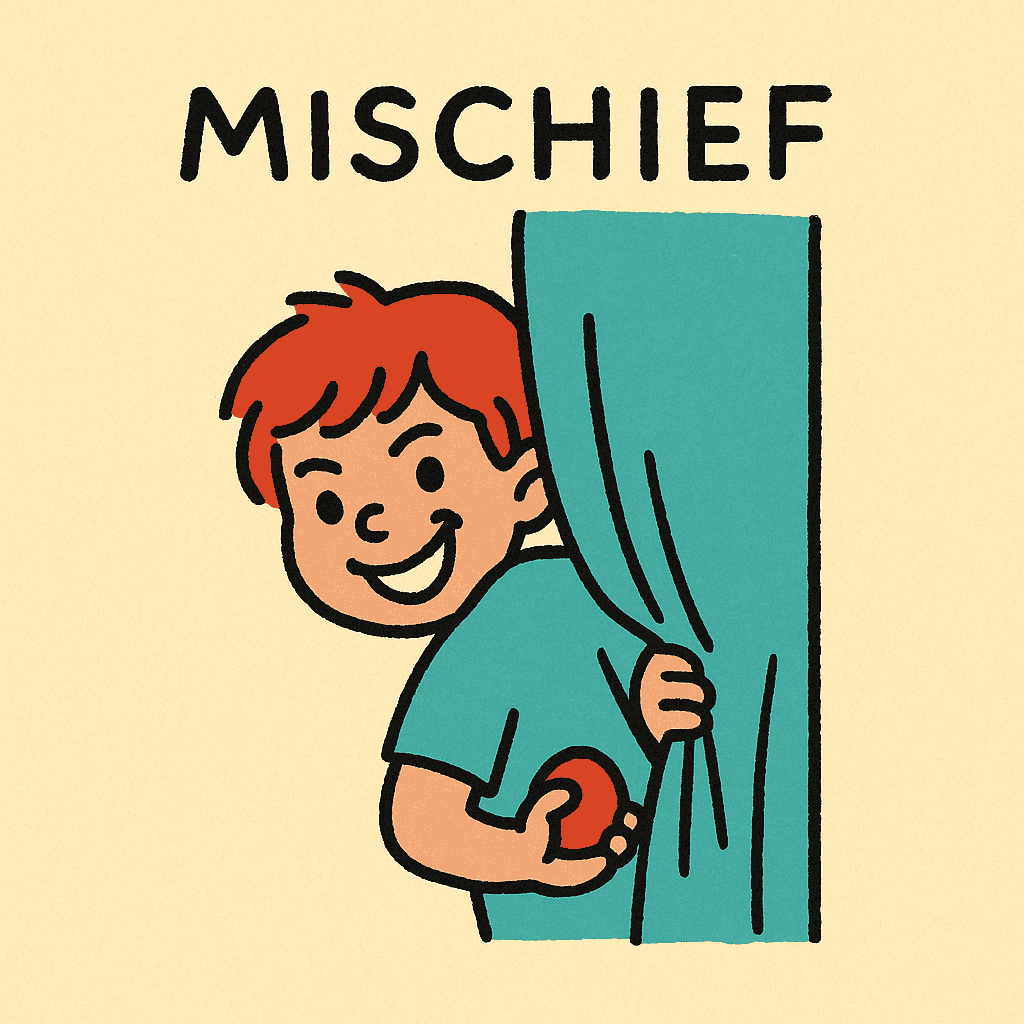Meaning
Mischief refers to behavior or actions that cause minor trouble, annoyance, or harm — often playful rather than seriously harmful. It can describe the fun kind of naughtiness or deliberate troublemaking.
Grammar and Usage
-
Part of speech: Noun
-
Uncountable noun in most cases.
-
Common structures:
- get into mischief (do something naughty)
- cause mischief (create trouble)
- full of mischief (very playful or naughty)
Examples of grammatical use:
- Children often get into mischief when left alone.
- Her smile was full of mischief.
Common Phrases
- Make mischief — to cause trouble or discord.
- Get into mischief — to behave badly or play tricks.
- Full of mischief — having a playful or naughty character.
- Cause mischief — to create trouble or problems for others.
Collocations
- childish mischief
- innocent mischief
- playful mischief
- act of mischief
- spirit of mischief
Examples
- The boy’s eyes sparkled with mischief as he hid his friend’s shoes.
- Don’t get into mischief while I’m gone!
- Her mischief often brought laughter to the classroom.
- The cat was always up to some mischief when no one was watching.
- A little mischief can make life more fun.
- He spread mischief by telling lies between friends.
- Their laughter was a sign of harmless mischief.
- The teacher caught them in the middle of their mischief.
Synonyms or Related
- Naughtiness
- Prank
- Trickery
- Playfulness
- Mischievousness
Antonym
- Good behavior
- Obedience
- Discipline
